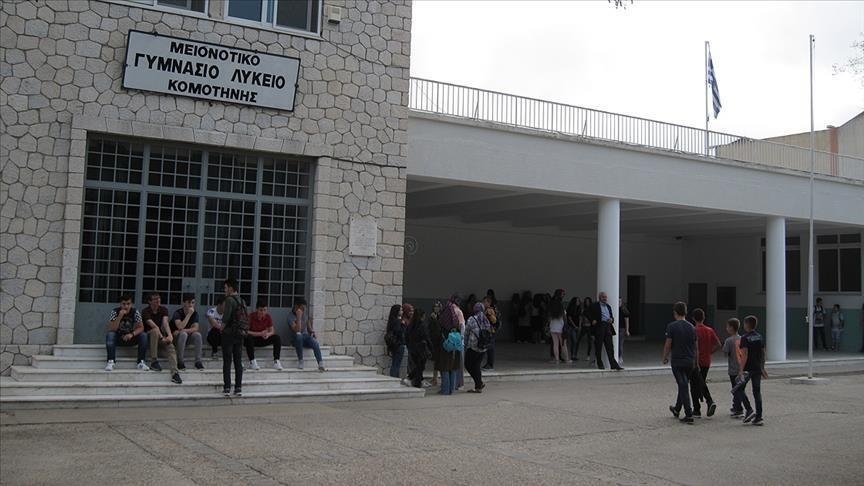
ANKARA
Greece’s Turkish minority has been experiencing numerous problems as a result of Greece’s systematic policies which aim to assimilate them in violation of the country’s bilateral and international legal obligations. Arguably, the area of education is where this state of affairs is most obvious.
Currently, Greece’s 150,000-strong Turkish minority, which is generally concentrated in the country’s Western Thrace region, are targets for being turned into second-class citizens in a region where they have lived for over six centuries.
Legal framework for education of Greece’s Turkish minority
The Treaty of Athens, signed in 1913 between the then-Ottoman Empire and the Kingdom of Greece, is the first essential legal assurance that addressed the education of the Turkish Muslim minority in Western Thrace. Protocol 3, Article 15 of the treaty protocol recognized the minority’s right to education in the Turkish language.
Article 40 of the 1923 Treaty of Lausanne affirmed that the minority is entitled to open and operate minority schools in which education is offered in Turkish. Moreover, Articles 9 and 41 of the same treaty say the Greek state must facilitate the minority’s education in its own language (Turkish), with the required funding allocated from local state authorities and administrations.
Furthermore, Greece, in 1954, in decree 3065, recognized the minority schools in Western Thrace as “Turkish schools” and allowed the opening of more such schools, including Celal Bayar Middle and High School in Gumulcine (Komotini).
However, seeing its Turkish Muslim minority as a “hostage” to ties with Türkiye, Greece started to violate the minority’s right to education in defiance of its own international legal obligations from the early 1960s onwards. With the far-right Greek military junta of 1967, the oppression of the minority became more obvious and heavier. The junta, through decree 1109 in 1972, decided not to use “Turkish” to denote the minority, in a move rejecting the Turkishness of the Turkish Muslim minority in the Western Thrace.
Even though the junta was toppled in 1974, its mistreatment of the Turkish minority was taken over and continued by successive democratically elected Greek governments. As such, through decrees 694 and 695 in 1977, Greece made the employment of teachers educated in Türkiye practically impossible. It also disempowered the minority school committee in the hiring of teachers.
As if all these undermining efforts are not enough, Greece kept the duration of compulsory education six years for the minority schools as opposed to nine years for the rest of the country.
Considering that the minority in Western Thrace are Greek citizens who pay taxes and do obligatory military service, among their other obligations, this is a clear example of how Greece sees and treats them.
As an inevitable consequence, the number of Turkish minority schools has fallen from 231 in 1995 to fewer than 100 now. Similarly, the number of students attending these schools has drastically decreased.
What is more, Greece does not recognize the right to education in the Turkish language to around 5,000 members of the Turkish minority living on the islands of Kos and Rhodes, claiming they were not included in the Treaty of Lausanne.
All in all, Greece systematically defies its international and bilateral obligations towards the Turkish Muslim minority in Western Thrace and treats them as “second-class citizens or internal threats” instead of equal citizens, as the EU and the West opt to turn a blind eye.
Anadolu Agency website contains only a portion of the news stories offered to subscribers in the AA News Broadcasting System (HAS), and in summarized form. Please contact us for subscription options.





